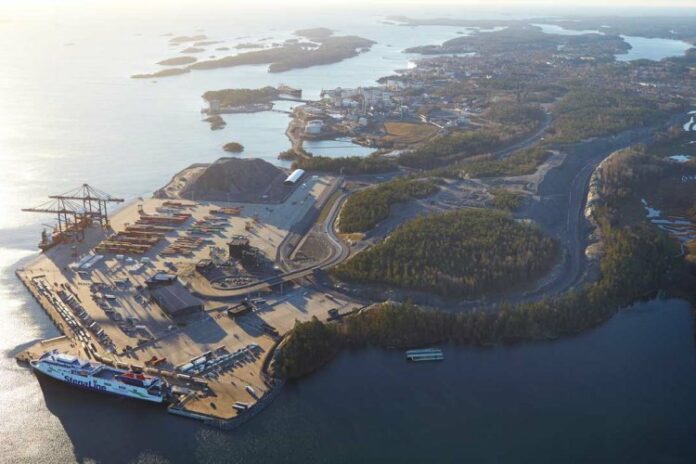Stockholm Norvik Port has recently been designated comprehensive status following the proposal of an agreement on the EU regulations for development of the Trans-European Transport Network (TEN-T).
Being part of the EU transport network and gaining comprehensive status makes it, among other things, possible to apply for EU funding. This gives Stockholm Norvik Port greater potential to continue to develop as a node for sustainable transport and to become a leading energy hub.
At the end of December the European Commission welcomed the political agreement reached between the European Parliament and the Council on the regulation underpinning the trans-European transport network (TEN-T). The new TEN-T regulation, which likely will enter into force in April 2024, means among other things a change in status for a number of Baltic Sea ports. Stockholm Norvik Port will now have comprehensive status.
Ports of Stockholm, together with customers and collaborative partners, will now be able to apply for and be awarded EU funding to further strengthen Stockholm Norvik Port’s infrastructure and offer at the best possible location in the Baltic Sea. This is important for growth, will create jobs in the region, and will make it easier for companies to act more sustainably.
“It is a very welcome decision that Stockholm Norvik Port will now have this status within the EU transport network. In our development projects it is important to have the possibility to apply for external funding and this decision gives us additional power to maintain and develop Stockholm Norvik’s position as a state-of-the-art port for the future,” explains Magdalena Bosson, CEO Ports of Stockholm.
The EU Trans-European Transport Network is an instrument for the development of a high-quality continuous, efficient, multimodal transport infrastructure over the entire EU. It encompasses railways, inland waterways, local shipping routes and roads that connect urban nodes, maritime and inland ports, airports and terminals. According to the agreement, the status of a port within the TEN-T network will in the future also be assessed on its contribution to the energy transition and not only on the basis of freight volumes and passenger numbers.
“It is very positive that the EU will make this change and confirm how important the ports are to energy transition. Ports today are more than just part of the transport infrastructure. Stockholm Norvik Port has a potential to be a strategic hub and partner when it comes to the development in the Greater Stockholm region within areas such as innovation and the transition of society to sustainable energy systems. The European ports, especially the Baltic Sea ports, are likely to play a decisive role in energy transition in Europe,” concludes Jens Holm, Chair of the Board of Ports of Stockholm.
The European Commission’s proposal to revise the existing Trans-European Transport Network (TEN-T) Regulation from 2013 was presented as part of a package for efficient and green mobility. In the new proposal the EU wants to specifically increase the proportion of transport by railway, local shipping routes and inland waterways, with the aim of achieving a more sustainable transport system structure and reduce the negative impacts of transport. The revised TEN-T Regulation is aimed at creating a defined basis for the development of the EU’s transport infrastructure from now until 2050.



